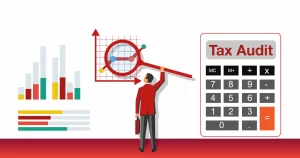 Taxation Authorities
Taxation Authorities
The legal requirements for a contractual service provider to undergo a tax audit can vary depending on the jurisdiction and the specific tax regulations in place. Generally, tax audits are conducted by tax authorities to ensure compliance with tax laws and regulations. While I can provide some general insights, it’s important to consult with a legal or tax professional in your jurisdiction for accurate and up-to-date information.
1.Thresholds and Triggers:
Tax audits may trigger based on certain thresholds, such as the amount of income earned the nature of transactions, or the volume of services provide. For example, if a contractual service provider’s income crosses a specific threshold.┬Ā It might increase the likelihood of selected for a tax audit.
2.Random Selection:
In some cases, tax authorities conduct random audits to maintain overall compliance levels. This means that even if a contractual service provider is operating within legal parameters, there’s still a chance of being audited.
3.Red Flags and Anomalies:
Unusual or inconsistent financial patterns, discrepancies between reported income and expenses, or discrepancies in tax reporting can raise red flags and lead to an audit.
4.Industry or Sector Focus:
Tax authorities might focus audits on specific industries or sectors that are known for higher instances of tax evasion or non-compliance.
5.Informant Reports:
Tax authorities can receive tips or reports from informants about potential non-compliance, leading to audits of the reported individuals or entities.
6.Previous Non-Compliance:
If a contractual service provider has previously found to be non-compliant in tax matters. This could increase the likelihood of future audits.
7.Tax Law Changes:
So, Changes in tax laws or regulations can lead to increased scrutiny on certain types of transactions, deductions, or income sources, prompting audits.
For more information to visit: https://www.mca.gov.in/
8.International Transactions:
If the contractual service provider engage in cross-border transactions.┬Ā Tax authorities might conduct audits to ensure compliance with international tax treaties and regulations.
Therefore, It’s important to note that tax audits can be complex processes involving in-depth reviews of financial records, documentation, and other relevant information. Contractual service providers should maintain accurate and detailed financial records, including invoices, receipts, contracts, and any relevant communication, to ensure they can demonstrate compliance if audited.
To determine the specific legal requirements for a contractual service provider to undergo a tax audit in your jurisdiction.┬Ā It recommends to consult with a qualified tax professional or legal advisor who is familiar with the local tax laws and regulations.
For further details access our website: https://vibrantfinserv.com
